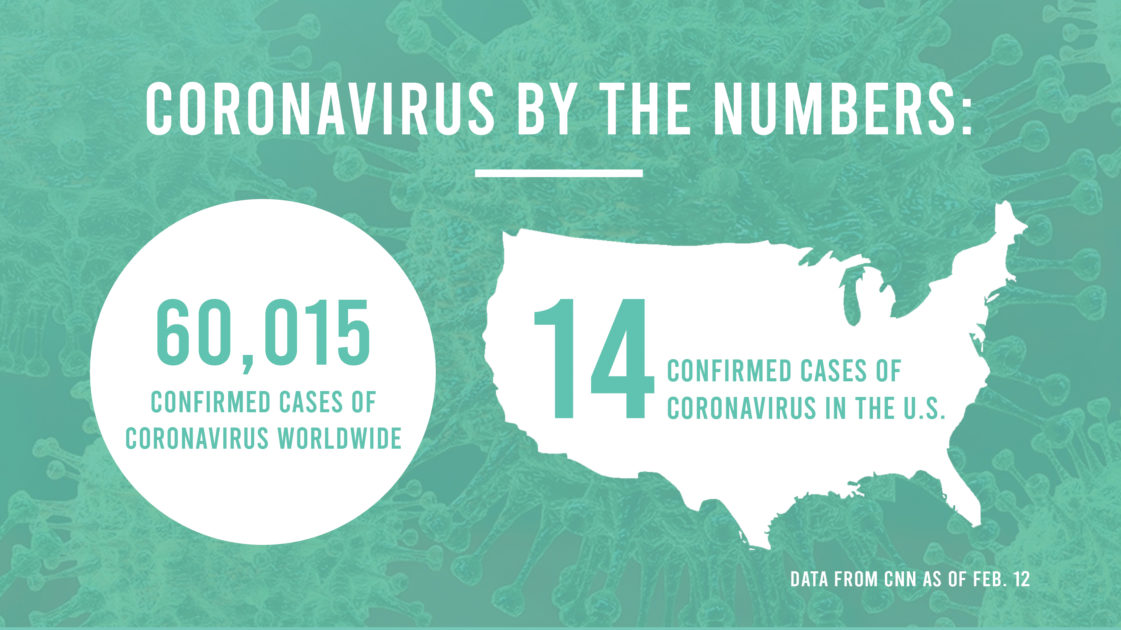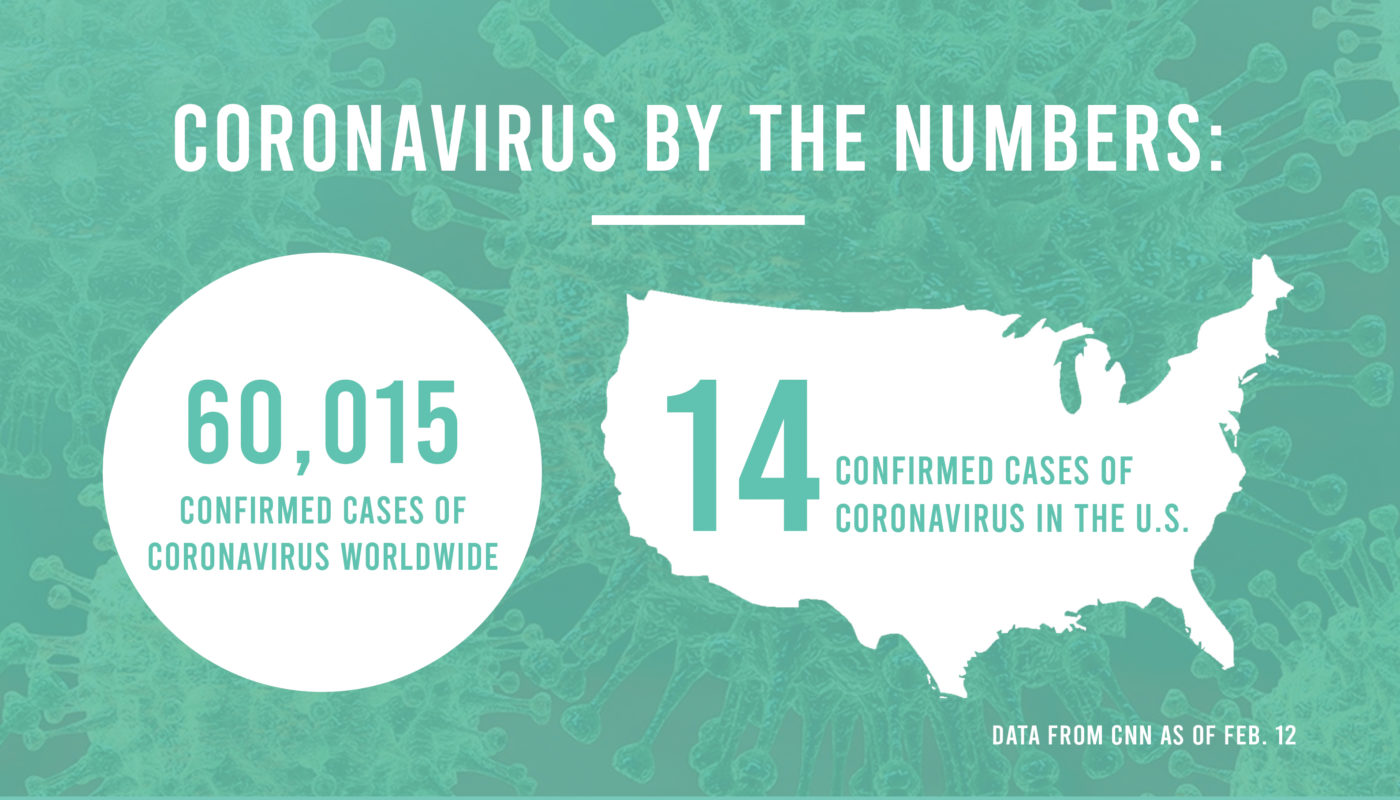Disclaimer: All information in this article was last updated on Monday, Feb. 10, 2020.
After its first appearance in the news in the beginning of January, coronavirus has become a concern for people around the world.
Coronavirus, now officially named COVID-19, is defined by the CDC as similar to the flu, but international travel must have occured. Symptoms of this may include vomiting, coughing, diarrhea, shortness of breath, nausea, headaches, or sneezing.

The first known case of coronavirus was in China.
“There are seven different coronaviruses that can infect humans … This particular virus [zoonosis] is believed to have evolved from eating bats or pangolins sold in some of the animal markets in China,” Rachel Ferrell, nurse at the Center for Health and Wellness, said. “So far the previous zoonotic coronaviruses such as SARS evolved in human hosts due to the ingestion of an infected animal. While it is unfortunate that this virus has now evolved to become an added risk for human exposure, it is still very minimal in the comparison to the flu virus which causes thousands of deaths each year.”
As of Feb. 4, there were 14 confirmed cases of coronavirus in the United States; eight in California, two in Illinois, one in Washington, one in Massachusetts, and one in Arizona. Many tests for the virus have occurred all over the U.S., including two possible cases at Miami University. Both students were cleared, but two basketball games were rescheduled due to the testing of the possible outbreak.
Although the common flu causes more deaths every year, the fear surrounding coronavirus has swept through many. Google searches regarding how to avoid the virus have become more common.
“Airline travel in general always carries a risk of catching an illness due to small, crowded areas that are exposed to hundreds of people,” Ferrell said.
Ferrell also stressed the importance of taking general sanitary precautions.
“When flying to a destination, it is beneficial to take antibacterial wipes and wipe down the immediate area where you will be sitting, such as the armrests, fan and light controls above the seat, the tray table, and window area,” she said. “Keeping your hands clean especially while eating, and being conscious to not touch your face where a virus could enter through your nose, mouth or eyes when you can’t wash your hands is a large factor for staying well.”
To take further precaution, exercise regularly. Staying healthy and keeping the immune system strong can help fight off bacterias.
If you are experiencing any concerning symptoms, go to the Center for Health and Wellness or visit a local doctors office.


